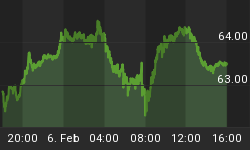Figure 001: UST Settlement Fails
Look no further than the Derivatives Inferno Tower of Financial Weaponry to explain the above rise in United States Treasury Failures. Settlement fails, occur when securities are not delivered and cash settled within 24 hours in the case of UST's above. The risk of loss due to counterparty insolvency is all too obvious, primary and secondary dealers essentially fail to deliver or fail to receive payment.
Simply put, someone who does not pay you, they failed to settle with you and you experienced your own special brand of settlement failure.
It is important to note that JP Morgan Chase and the Bank of New York are the two largest primary dealers for settlement. In addition, it is exceptionally important to understand that United States Treasuries are the most marketable securities on the planet, or at very least, they were.
I would infer they have become a sloshing cesspool of toxic debt; with the FED simply maintaining 'liquidity' to keep these securities marketable. We can't have an insolvent Government issuing insolvent DEBT now can we. Of course, an insolvent Central Bank can issue 'money' to maintain liquidity, but alas, this is simply more DEBT, insolvent no less.
The Federal Reserve has allowed the most egregious moral hazards to compound within this market. Market participants, primarily dealers and hedge funds, frequently sell more securities than they own, in other words, they short UST's. These institutions may also commit to purchasing UST's far in excess of cash available.
In either instance the need to facilitate a 'borrow' arises; in the form of money to make the payment due at delivery or to borrow securities to make delivery and receive payment.
Borrowing money to pay for a purchase, and/or borrowing securities to settle a short sale, are 'financed' transactions, which are done through the Federal Reserve's Open Market Operations Desk. Submissions are received and repurchase agreements (REPO's) are accepted, when submissions exceed the accepted bids, Securities Lending (LTSL's) makes up a good deal of the liquidity shortfall.
The purchase of treasury notes or bonds from dealers, by the Federal Reserve is referred to as a 'Coupon Pass;' the 'coupon' refers to the coupons which are the main difference between T-notes and T-bills. The "pass" comes from when the Federal Reserve buys T-bills from dealers thus passing the bill. It is significant to note that the bulk of Government Finance is done within the T-Bill domain. The United States Treasury, under the 'assistant' auspices of Timothy Bitsberger has decided it would be wise to move to short end finance with Interest Rates near historic lows.
Consider it the moral equivalent of an Adjustable Rate Mortgage in a rising rate environment, complete lunacy.
The REPO pool has likely expanded in excess of $100 Billion by now and intra-day; I'd suggest it is through the roof and much higher.
Securities lending has been historic in nature, the amounts continue to compound weekly.
Coupon passes have increased markedly as well, we've has a summer flurry to inject short end liquidity.
All this liquefaction reeks of desperation on the part of the FED and will likely continue until it cannot; the resultant spill over effect will be continued hyperinflation of liquidity for first abusers (primary dealers), higher prices for essentials and decidedly more risk to a systemic and structural failure.
Protect yourselves, all the signs are there.















